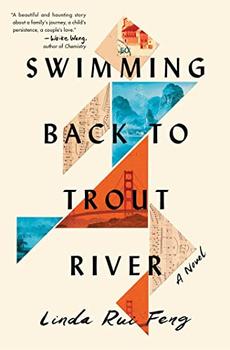Summary | Excerpt | Reviews | Beyond the Book | Readalikes | Genres & Themes | Author Bio

"It doesn't work like that," she told Junie, but the question seemed to have put her in a pensive, though cheerful, mood. As Grandpa dried his feet, she told Junie that the universe was full of transformations, some of which we could see, but most of which we couldn't. She said that the philosopher-poets from ages ago talked about zaohua, the Fashioner of Creatures, the Shaping Mutator, the unseen forces that turned animals into plants, minerals into animals, and people into anything imaginable. These metamorphoses were more creative than we can put names to, because they erased forms but invented new ones too.
Yes, Grandma answered, the philosopher-poets thought that a person could turn into a cricket's arm.
Yes, maybe even a mouse's liver!—in a manner of speaking.
"But the idea is that we don't always know, you see, what the Great Transformation will turn us into," she told Junie.
It would be years before Junie could fully understand what this meant.
Seven, to be exact.
Near the center of the village, the river changed all year long. Sometimes the current had a palpable heaviness to its texture and its sound too. Sometimes the river was so flat and opaque that when she rode on the back seat of Grandpa's bicycle as they crossed the stone bridge, Junie could imagine tossing a pebble at it and thought it just might glide clear across the surface. At other times, her eyes got caught by some boy her age squatting at the river's edge, slapping a twig in the water and watching the splashes rise up and disappear into the channel.
Who can say how a child puts down tiny, imperceptible roots in a place? For some, it might have been years of walking barefoot in the damp mountains, from the mud that caked their feet and seeped under their fingernails. Or it might have been from the shifting currents of moisture and breeze, the smell of fungi and moss in their wake, the patterns of leaf fall and resprouting, the regeneration and degeneration of matters vegetal and mineral as they endlessly passed through now one life, now another, until all this became something more than chance, something that imprinted its mark on a child.
Junie's grandparents taught her to read and write at home, and on summer nights the constellations supplied lessons in history and literature. The year she turned ten, Grandpa found one day he could no longer climb the bamboo ladder to the attic with Junie on his back. So he put her down and climbed up himself, his legs shaky but unafraid. In the attic, he gathered a few of his old carpenter tools and brought them down. The ladder squeaked pliantly under his weight.
He made a kind of rocking horse fitted with four large wheels salvaged from a trolley. Then he carved out two wooden poles of the right length and girth so that Junie could sit astride the wooden horse and propel herself forward with them. The horse shape was to distract her from the fact that it moved without agility or speed. He didn't like the idea of her getting around too far.
Three shallow steps separated the corridor outside their room in the Soviet-style apartment building from the communal courtyard, and Junie soon figured out a way to get down those steps on the wooden horse, by holding on to the banisters and letting the thick wheels bounce down one by one.
From time to time, Junie still asked her grandparents to tell her the story of Momo and the tiger, and they obliged her.
"He's always hated taking naps," Grandma said. "He'd just run out and play."
"So that day when we couldn't find him in the usual places in the afternoon," Grandpa piped up, "we remembered the rumors of tigers coming into the village."
"There was just one, right?" Junie asked, even though she knew the answer already.
"Oh it was a tiger couple," Grandpa said. "Possibly newlyweds."
Grandma rolled her eyes.
.
Your guide toexceptional books
BookBrowse seeks out and recommends the best in contemporary fiction and nonfiction—books that not only engage and entertain but also deepen our understanding of ourselves and the world around us.